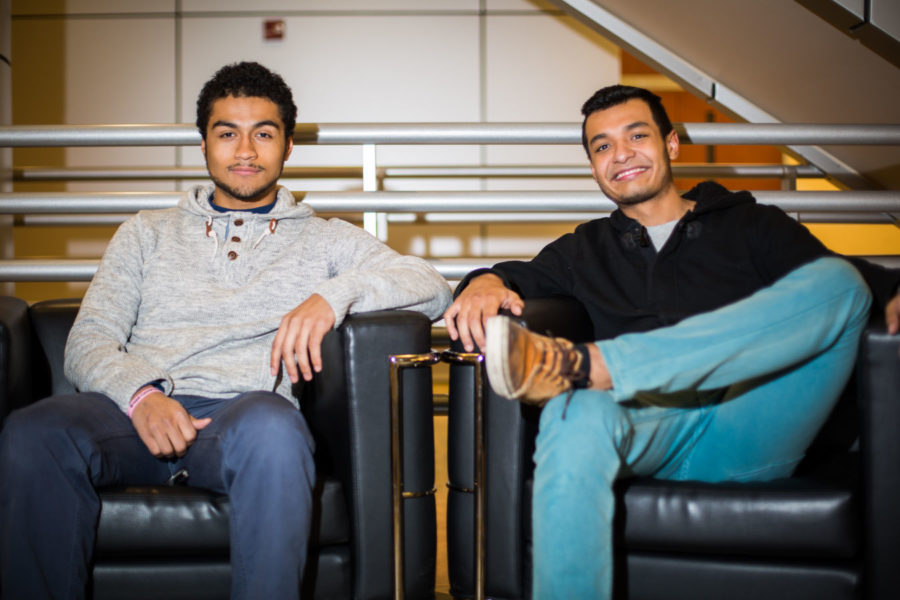CREAiTIV Data Society promotes interdisciplinary research
November 19, 2014
Within the next seven years, the U.S. Bureau of Labor predicts a 24 percent increase in demand for jobs related to data analytic skills.
As students equipped with such skills, Pablo Lopez and Ismael Correa wanted to make a Registered Student Organization to prepare for this employment gap. And so, the CREAiTIV Data Society was born this semester.
The acronym CREAiTIV stands for Collaborative Research Engineers Attempting interdisciplinary Technological Innovation Ventures and serves as a simple explanation for the RSO’s goal, said Lopez, senior in statistics.
“We’re not doing just research, not just statistics. We’re doing interdisciplinary research, which is important because we’re heading into a new big data world,” he said.
The idea for the RSO started when Lopez offered to analyze Correa’s data for a small research project last April. Eventually, they both agreed it would be better to give others an opportunity to join in, Lopez said.
Get The Daily Illini in your inbox!
Inspiration for this idea partly came from Lopez’s experience interning with the Stakeholder Alignment Collaborative Project, a group of 25 Ph.D. students around the country, working to promote the collaboration between geoscientists and computer scientists.
“I thought it’d be nice for someone to allow undergrads to do this, even if they don’t have their GPA together,” he said. “They should still be able to do what they want.”
Thus, this RSO aims to bring together student social scientists and statisticians to analyze data related to social issues, which would result in “endless research possibilities” and a lot of “power,” Lopez said.
“Social researchers, up until recently, were limited to statistics and multiple questions,” he said. “But because of all the data coming up and all the computerized technology, social researchers now are booming with new things that they can research.”
Lopez and Correa hope to develop innovative research ideas by drawing in student researchers with different majors that will fulfill the social and analytic categories.
Majors that would fall under the social category include sociology, political science, psychology, economics, civil engineering and history. On the other hand, the analytic category would include majors such as math, statistics, informatics, computer science, industrial engineering and electrical engineering.
This collaborative effort is the most exciting aspect of the RSO, Correa said, junior in LAS.
“When you fill a room with all of these perspectives, it’s definitely interesting to see the different ideas and the resolutions,” he said.
For Lopez, it is the point of “unraveling,” he said.
“We all understand the research similarly, but we communicate differently,” he said. “But there is going to be a time that everyone is going to realize that there is a connection between all the different perspectives. And once they realize it, there’ll be a breakthrough in research.”
As of now, the RSO is in the “ideation” stage, in which members must come up with five ideas. In the next couple of weeks, the proposal idea pool will be cut down to five projects that the group will extensively research during next semester.
The end goal of the RSO is to give undergraduate students the opportunity to be published on their website and other academic journals and to be able to display the research projects and data products they developed over the course of the year.
Yet, the overall mission of CREAiTIV Data Society is to ultimately use data for the good of society, Correa said.
“We live in a world of data,” he said. “And if all the data is there, why not analyze it and see if there is a way that we could find a benefit to society?”
Stephanie can be reached at [email protected].







